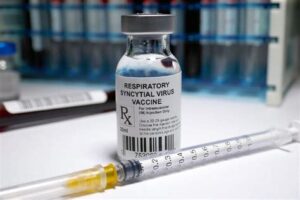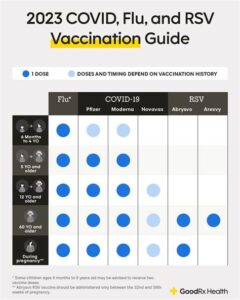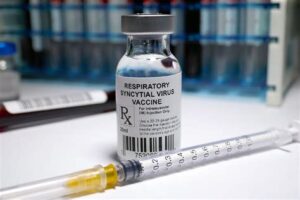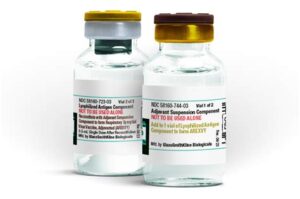Explore the AARP, the significance of the RSV vaccine, who should receive it, its common side effects, and future research developments.As our understanding of health continues to evolve, so too does our approach to safeguarding vulnerable populations, especially among older adults. In this blog post, we’ll delve into the significance of the Respiratory Syncytial Virus (RSV) vaccine, an essential tool in protecting our aging community. You may be familiar with AARP, an organization dedicated to advocating for the interests of seniors; they play a vital role in disseminating critical health information. We will explore who should consider getting this vaccine, discuss the common side effects associated with it, and look ahead at future research developments that could enhance protection against RSV. Join us as we unpack these important topics to empower ourselves and our loved ones in making informed health decisions.
What is the AARP?
The AARP, or the American Association of Retired Persons, is a nonprofit organization dedicated to advocating for the rights and well-being of individuals aged 50 and older. Founded in 1958 by Dr. Ethel Percy Andrus, the AARP aims to enhance the quality of life for seniors through various programs, services, and legislative lobbying.
One of the primary goals of the AARP is to provide valuable resources that empower older adults to live independently and successfully. This includes offering financial planning advice, health information, and educational opportunities. The organization also serves as a powerful voice in Washington D.C., influencing policy changes that affect retirement, healthcare, and social security.
In addition to advocacy, the AARP provides its members with discounts on various services and products, including travel, insurance, and health-related services. By uniting millions of members, the AARP works to ensure that older Americans can access the support they need for a fulfilling life.
The importance of the RSV vaccine
Respiratory Syncytial Virus, commonly known as RSV, is a significant cause of respiratory illness, particularly in infants and older adults. The development of the RSV vaccine represents a crucial advancement in public health, as it aims to reduce the incidence of this potentially severe illness.
The importance of the RSV vaccine cannot be overstated, especially considering its potential to save lives. By vaccinating vulnerable populations, such as newborns and elderly individuals, we can significantly lower the risk of severe RSV infections that lead to hospitalization. This vaccine serves not just to protect the individual, but also to create herd immunity, which helps to shield those who cannot be vaccinated.
Moreover, the RSV vaccine plays a vital role in alleviating the burden on healthcare systems. By reducing hospital admissions and the associated treatment costs, the vaccine helps free up medical resources that can then be directed towards other healthcare needs. As more research continues to improve vaccine efficacy and accessibility, the hope is
Who should get the RSV vaccine?
The RSV vaccine is crucial for protecting certain populations that are more vulnerable to the respiratory syncytial virus (RSV). This virus primarily affects infants and the elderly, making it essential to identify who should receive the vaccine to minimize the risk of severe illness.
- Infants and young children: Particularly those under 2 years of age, as they have the highest risk of severe RSV infections.
- Older adults: Especially those aged 65 and over, as they are at increased risk for complications associated with RSV.
- People with compromised immune systems: Individuals with chronic lung disease, heart disease, or weakened immune systems also need to be vaccinated.
In addition to these groups, healthcare providers recommend that caregivers and close contacts of high-risk individuals also consider receiving the RSV vaccine to help protec
Common side effects of the RSV vaccine
The RSV vaccine is a significant development in the fight against respiratory syncytial virus, especially for vulnerable populations such as infants and the elderly. Like any medical intervention, it can come with some side effects, though most are mild and temporary.
| Side Effect | Frequency |
|---|---|
| Soreness at the injection site | Common |
| Fatigue | Common |
| Headache | Less common |
| Low-grade fever | Less common |
| Muscle aches | Less common |
While these side effects can occur, they are generally mild and resolve within a few days. It’s essential for individuals receiving the RSV vaccine to discuss any concerns with their healthcare provider, who can provide guidance based on personal health history and current conditions.
Understanding and being aware of potential side effects is critical in making informed decisions about vaccinations. Staying informed contributes significantly to community health efforts and the overall effectiveness of RSV vaccination programs.
The future of RSV vaccine research
As we look towards the future of RSV vaccine research, there are several promising developments on the horizon. Research teams around the world are focused on creating a more effective Respiratory Syncytial Virus (RSV) vaccine that can provide robust protection for vulnerable populations, especially infants and the elderly. The landscape of vaccine development is rapidly changing, supported by advanced technologies and greater understanding of viral mechanisms.
One of the most exciting areas of research is the use of mRNA technology, a method that has shown tremendous success in COVID-19 vaccines. Scientists are exploring whether this approach can be adapted to develop an effective RSV vaccine. Trials have begun that will assess the efficacy of mRNA-based vaccines in eliciting a strong immune response, potentially paving the way for widespread vaccination strategies.
In addition to mRNA, there is ongoing exploration of other platforms, including protein-based and live-attenuated vaccines. Each of these candidates undergoes rigorous testing for safety and effectiveness. Collaboration among pharmaceutical companies, governmental health organizations, and academic institutions is crucial to accelerate the progress of RSV vaccine research, providing hope for a f
Frequently Asked Questions
What is the AARP RSV vaccine?
The AARP RSV vaccine is a vaccine developed to protect against respiratory syncytial virus (RSV), which can cause severe respiratory infections, particularly in infants and older adults.
Who should consider getting the RSV vaccine?
The RSV vaccine is particularly recommended for older adults, those with weakened immune systems, and individuals with chronic lung or heart conditions.
What are the benefits of the RSV vaccine for seniors?
The RSV vaccine helps reduce the risk of severe illness caused by RSV in seniors, who are more susceptible to complications from respiratory viruses.
When is the best time to get the RSV vaccine?
It is advisable to get the RSV vaccine before the onset of RSV season, which typically occurs in the fall and winter months.
Are there any side effects associated with the RSV vaccine?
Like most vaccines, the RSV vaccine may cause mild side effects such as soreness at the injection site, low-grade fever, or fatigue, but serious side effects are rare.
How effective is the RSV vaccine?
Clinical studies suggest that the RSV vaccine provides significant protection against severe disease; however, its effectiveness may vary among different populations.
Where can seniors get the RSV vaccine?
Seniors can get the RSV vaccine at various healthcare provider offices, clinics, and pharmacies that offer immunizations.





